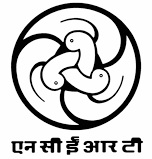
| Board | National Council of Educational Research and Training [NCERT] |
| Download | Model Question Paper |
| Classes | Classes X and XII |
| Document Type | |
| Official Website | https://ncert.nic.in/model-question-papers.php?ln= |
NCERT Model Question Paper
Model Question Papers for Classes X and XII were prepared by NCERT and communicated to CBSE. The question papers are prepared in the light of recommendations of position paper on Examination Reforms and National Curriculum Framework, 2005.
Also Read : CBSE Class 10th Previous Year Sample Question Papers
Download Model Question Paper
Class X:
Class XII:
- Hindi Core
- Hindi Elective
- English Elective
- Sanskrit Core
- Sanskrit Elective
- Urdu Core
- Urdu Elective
- Mathematics
- Chemistry
- Biology
- Business Studies
Class XII Elective English Sample Questions
Non-Fiction:
Read this short excerpt and answer the question below:
I wish I could hit upon a pleasant track of thought, a track indirectly reflecting credit upon myself, for those are the pleasantest thoughts, and very frequent even in the minds of modest mouse-coloured people, who believe genuinely that they dislike to hear their own praises. They are not thoughts directly praising oneself,’ that is the beauty of them; they are thoughts like this…
And the novelists in future will realise more and more the importance of these reflections for of course there is not one reflection but an almost infinite number; those are the depths they will explore, those the phantoms they will pursue, leaving the description of reality more and more out of their stories, taking a knowledge of it for granted, as the Greeks did and Shakespeare perhaps-but these generalisations are very worthless.
Why does Virginia Woolf consider reflections of the self more important than the description of reality in story-writing? Comment on a novel or story that you have read that illustrates this technique.
Poetry:
Read the following lines from Emily Dickinson’s poem and answer the questions below:
The Sun shone whole at intervals –
Then Half – then utter hid – As if Himself were optional
And had Estates of Cloud
Sufficient to enfold Him
Eternally from viewExcept it were a whim of His
To let the Orchards growA Bird sat careless on the fenceOne gossiped in the Lane
On silver matters charmed a Snake
Just winding round a Stone
i. Explain the extended metaphor in these lines and discuss its effectiveness as a literary device.
ii. Give examples from other poems you have read in which this device features prominently.
Fiction:
2a. Read the following excerpts from James Joyce’s Eveline and answer the question given below:
“She stood up in a sudden impulse of terror! Escape! She must escape! Frank would save her. He would give her life, perhaps love too. But she wanted to live. Why should she be unhappy? She had a fight to happiness. …
Their passage had been booked. Could she still draw back after all he had done for her? Her distress awoke a nausea in her body and she kept moving her lips in fervent prayer. A bell clanged upon her heart…. No! No! No! Impossible. Her hands clutched the iron in frenzy. Amid the seas she sent a cry of anguish. “
‘It is not the actions of a character in a short story but the whole range of emotions that cause the actions that contributes to its plot. ‘ How does this statement apply to Eveline’s final decision?
2b. The human mind has a tendency to construct its own reality that often conflicts with the objective reality of life. Why does Miss Carvil support Captain Hagberd in his imaginary construction? What is her personal disappointment in Captain Hagberd’s refusal to accept Harry as his son when he returned?
Drama :
3a. Discuss the following comment on the play Chandalika giving examples from the text: ‘Chandalika is a tragedy of self-consciousness overreaching its limit. Selfconsciousness up to a certain limit is necessary for self-development; for without an awareness of the dignity of one’s function or role in society, one cannot give one’s best to the world. …But self-consciousness, like good wine, easily intoxicates and it is difficult to control the dose and have just enough of it… . ‘
3b. ‘The central issue in Karnad’s Broken Images is the radically unequal status of fiction written in two contemporary languages, Kannada and English. The other issue is that Indian plays in English occupy a distinctly subservient positionnot only to fiction and non-fiction but also in relation to plays in Indian languages such as Bengali, Marathi, and Kannada. ‘
Would you agree that Karnad’s own authorial career is a strong attempt at counteracting these two imbalances? Give examples of other writers who have been successful in this.
[Note:This section dealt with texts that have already been studied. Thefollowing section contains selections from poetry and non-fiction of a comparable level. Students should be able to respond sensitively to these texts]
Have a question? Please feel free to reach out by leaving a comment below
